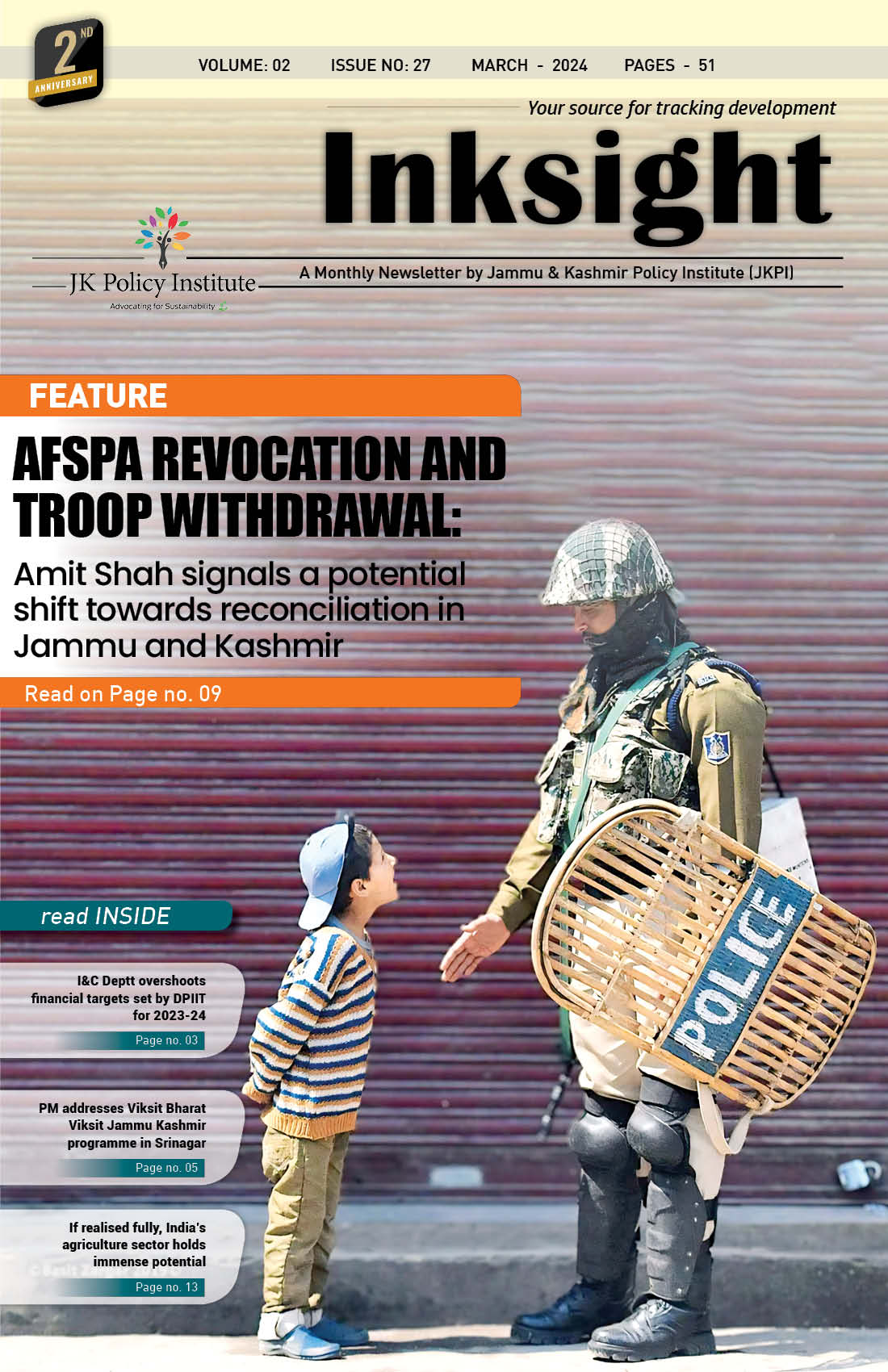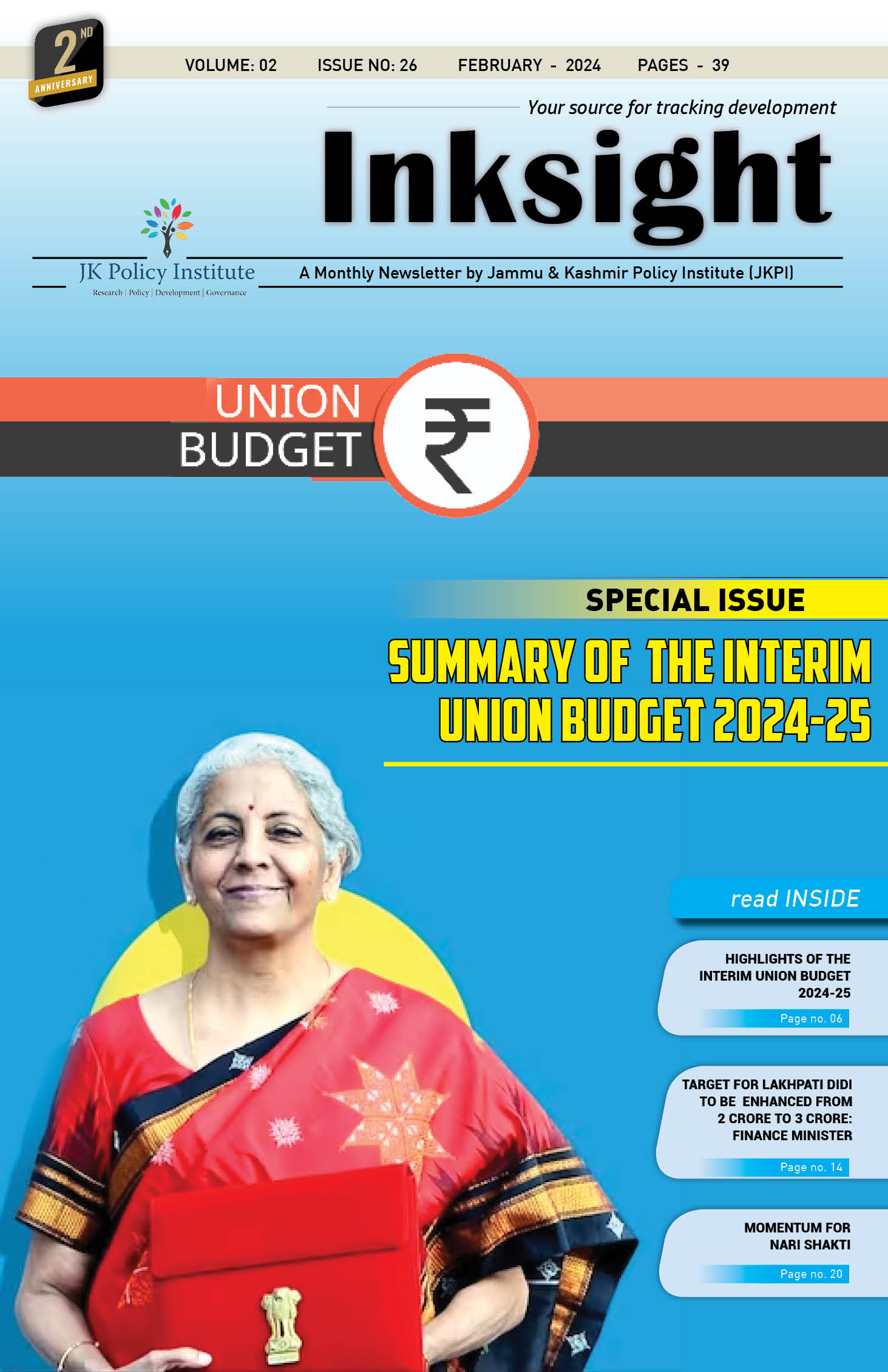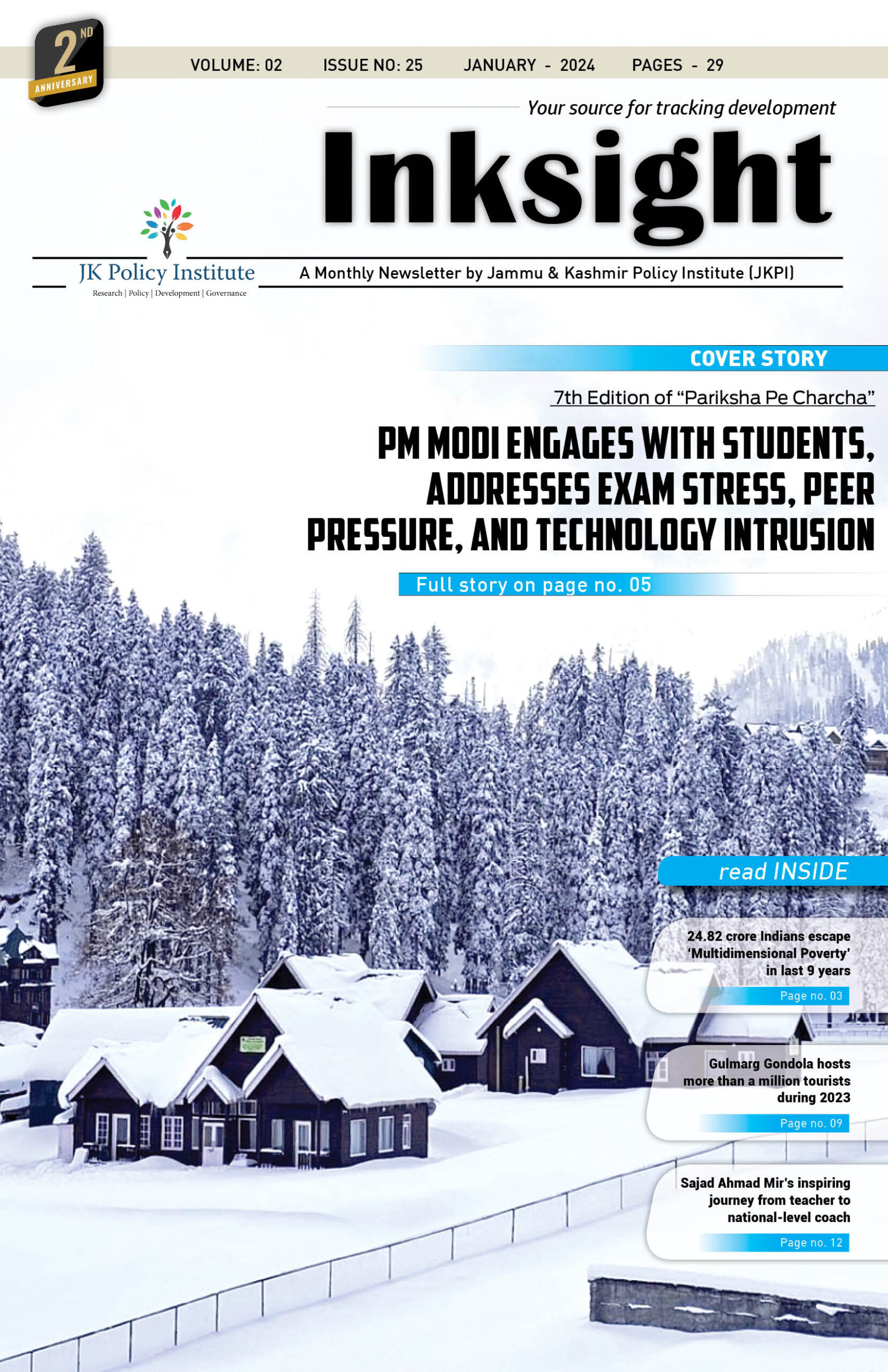The beautiful streams, lanes, and roads of rural Jammu and Kashmir, along with its verdant slopes and plains, are increasingly being polluted by waste. Despite government-formulated strategies and strict guidelines, the union territory has failed to handle the waste scientifically. The management of solid and liquid waste has been extensively covered by JKPI in the past. This case study will make an effort to shed light on the developments, constraints, and alternatives in view of the current government initiatives aimed at managing waste in rural areas.

Waste has been dumped between two streams in the Ramhuma village of Budgam.
Waste management involves more than just dumping waste.
To address the management of liquid and solid waste produced by villages, each state is mandated to identify appropriate technologies or procedures under the Swachh Bharat Mission – Gramin (SBM-G), initiated by the current NDA regime in 2014. Gram Panchayats with 150 families or fewer receive Rs 7,00,000 for this purpose, while Panchayats with more than 500 households receive Rs 20,00,000. However, the administration in Jammu and Kashmir failed to adhere to these guidelines, resulting in a lack of appropriate funds and causing villages in Kashmir to be overwhelmed with waste.
Recently, the government has taken some steps to manage waste in Panchayats. Unfortunately, the lack of knowledge about environmentally friendly waste disposal techniques among the Panchayats and insufficient funds for waste management have led them to adopt harmful methods. For example, in District Budgam, dustbins provided by the Block Development Department in each village for household waste disposal are misused, with waste being disposed of without segregation. Moreover, these dustbins have turned into dumping grounds due to the lack of cleaning and further processing.
To collect and dispose of waste in each Panchayat in Budgam district, the Panchayat bodies were instructed to recruit workers and vehicles. The government will also supply electric vehicles for waste transportation from villages to approved “dumping sites.” The Panchayats will charge residents and business owners a monthly fee for waste pickup, and the collected waste will be deposited at a “central dump site” for multiple villages. Each Panchayat is equipped with a segregation shed, supposed to be built by the block development department, where biodegradable trash can break down into fertilizer for farming. However, JKPI found that some aspects of this plan were implemented in a few areas without adhering to the Solid Liquid Waste Management (SLWM) guidelines of 2014.
The Swachh Bharat Mission emphasizes that Panchayats must adopt waste management methods that comply with SLWM regulations. However, the Budgam administration has created central dumping sites for villages, and dumping practices have commenced in several villages without processing the waste. For instance, in the Ohangam hamlet in Block Rathsana, waste is collected weekly without segregation and dumped along the village outskirts. This violates SLWM regulations, which mandate waste processing before disposal. Similar circumstances exist in the Chewdara village, where the Sarpanch, Mir Bilal, mentioned facing resistance from villagers against dumping waste on their land.
The government has constructed sheds at several Panchayats for residents to dispose of waste, with plans for vehicles to collect waste and transport it to central dumping sites. Unfortunately, these sheds are being used as dumping sites, such as the one on the Budgam Watrahail road at Zalapora hamlet, posing serious threats to pedestrians with overflowing trash both inside and outside.

Waste Shed at Zalapora
In specific areas, waste is deposited into government-installed dustbins. For example, in the village of Malpora in the Beerwah region, the installed dustbins are now overflowing, and waste is seeping into the surrounding stream. Despite residents paying for waste collection, they express frustration as no collection vehicles ever reach their village.

Dustbins at Mulpora village of Budgam
Recommendations
There is a lack of awareness about waste management among the people, making it challenging for Panchayats to handle it. Therefore, it is crucial to instil a sense of waste management among the general population, with a particular focus on women. Awareness programs can be instrumental in achieving this goal. Preachers should be engaged in spreading the word about the significance of waste management, and the government should encourage them to deliver entire sermons on the topic from a religious perspective. To facilitate easier waste processing in the future, Panchayats should conduct awareness programs, especially those emphasizing waste segregation.
Consider Sharafat Ahmad of Shuganpora Village in Bandipora District as an example of how much waste can be recycled with little effort and how it can also help Panchayats raise money. To procure household waste such as nylon, steel, paper, and other types of plastic from households, Sharafat drives daily from village to village in his automobile and purchases around 100 kg of waste. If Panchayats collaborate with such individuals who make a living by recycling waste, money can be generated, and a significant amount of waste can be recycled.
 To prevent soil erosion, the government is constructing check dams on slopes where rain has formed ditches, swales, or channels. While these ditches or channels can be utilized for waste disposal, they must be located far from residential areas, and the top few layers must be covered with soil. Similarly, Panchayats are constructing roads in the village through MNREGA, and since these roads typically require a substantial amount of filling, waste can be effectively used to fill ditches and other areas. This way, a considerable amount of waste can be managed efficiently.
To prevent soil erosion, the government is constructing check dams on slopes where rain has formed ditches, swales, or channels. While these ditches or channels can be utilized for waste disposal, they must be located far from residential areas, and the top few layers must be covered with soil. Similarly, Panchayats are constructing roads in the village through MNREGA, and since these roads typically require a substantial amount of filling, waste can be effectively used to fill ditches and other areas. This way, a considerable amount of waste can be managed efficiently.

Conclusion
The aforementioned points indicate that the government is adopting an unscientific waste management process in Kashmir. Importantly, the insufficient and unscientific initiatives are not adequate or feasible to address the waste management issue in rural Kashmir. To mitigate the negative and hazardous effects of waste, it is paramount to adhere to Solid Liquid Waste Management (SLWM) rules. The administration must understand that waste should be processed in accordance with prescribed standards and laws. The government should focus on building processing sites rather than dumping sites. To facilitate easier processing in waste management, segregation should occur at the source. Additionally, the infrastructure installed for waste management should not be used merely to alleviate pressure from higher authorities or to expend funds to avoid lapses. Since waste management is a complex matter that significantly impacts our environment, it demands greater honesty and strict adherence to guidelines. Otherwise, the situation will only worsen.
References
https://www.toppr.com/ask/content/concept/dumping-of-solid-waste-227811/
http://risingkashmir.com/pollution-free-vehicles-to-collect-waste-in-every-budgam-panchayat-2554ae57-b448-47e5-90d7-190855954782s





Leave a Reply
You must belogged in to post a comment.